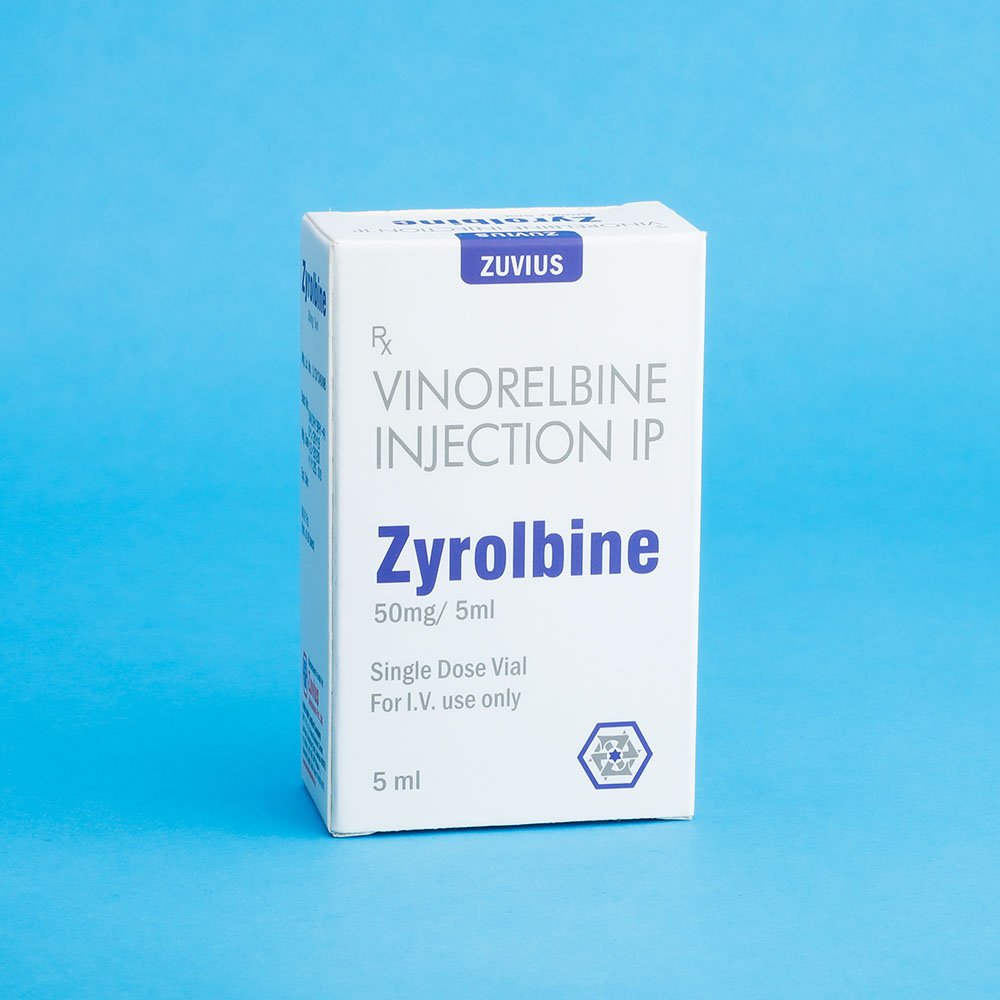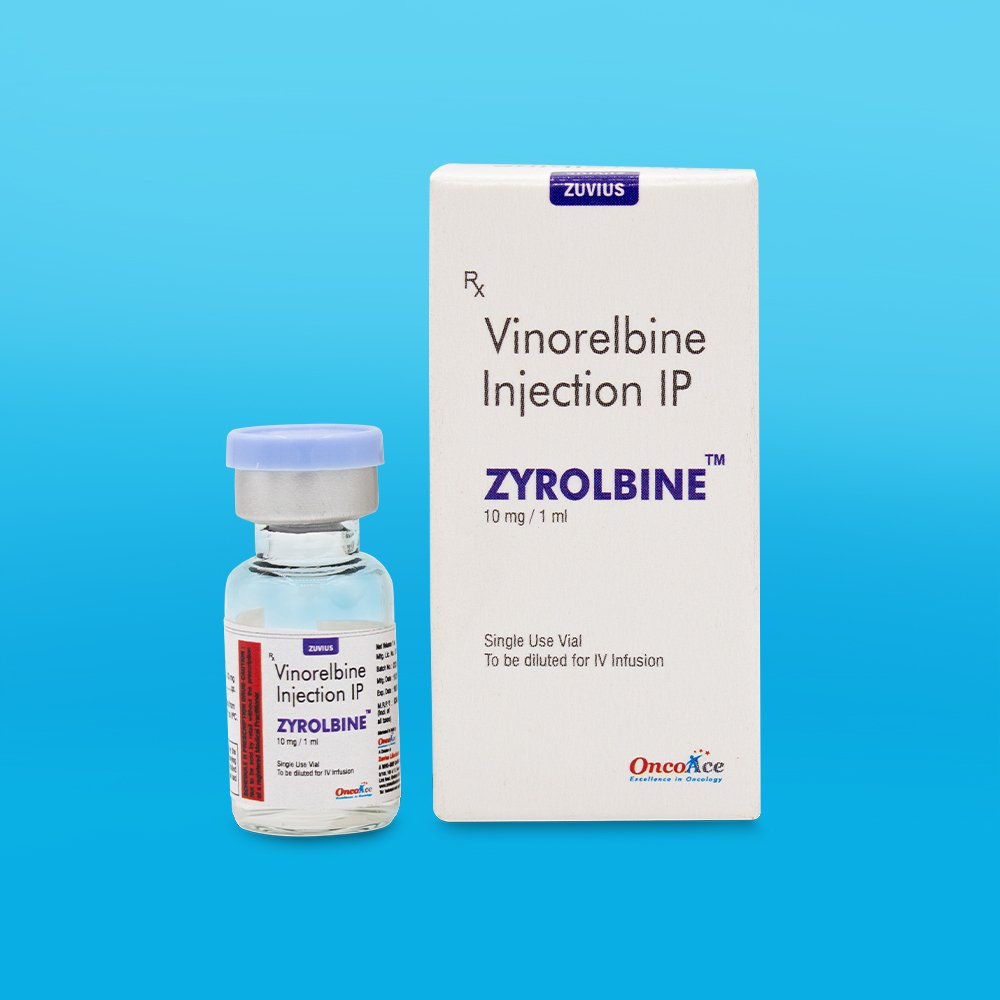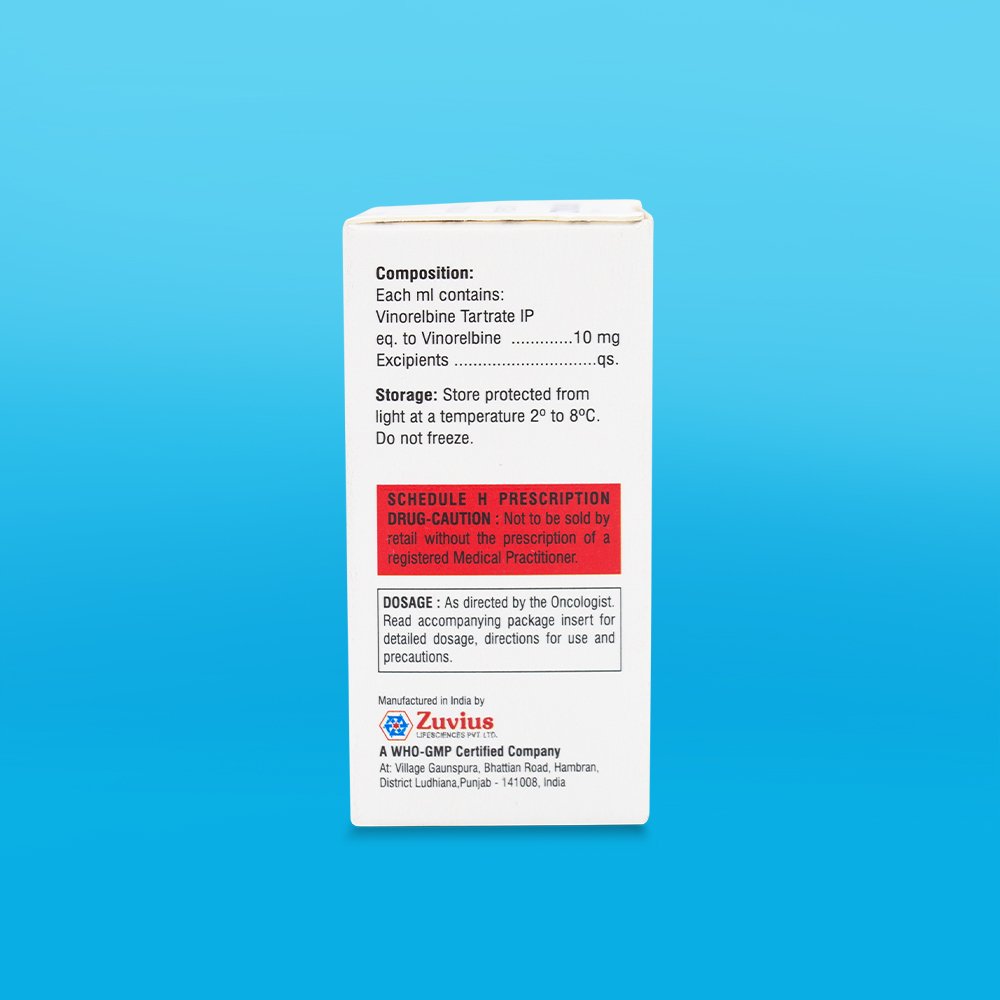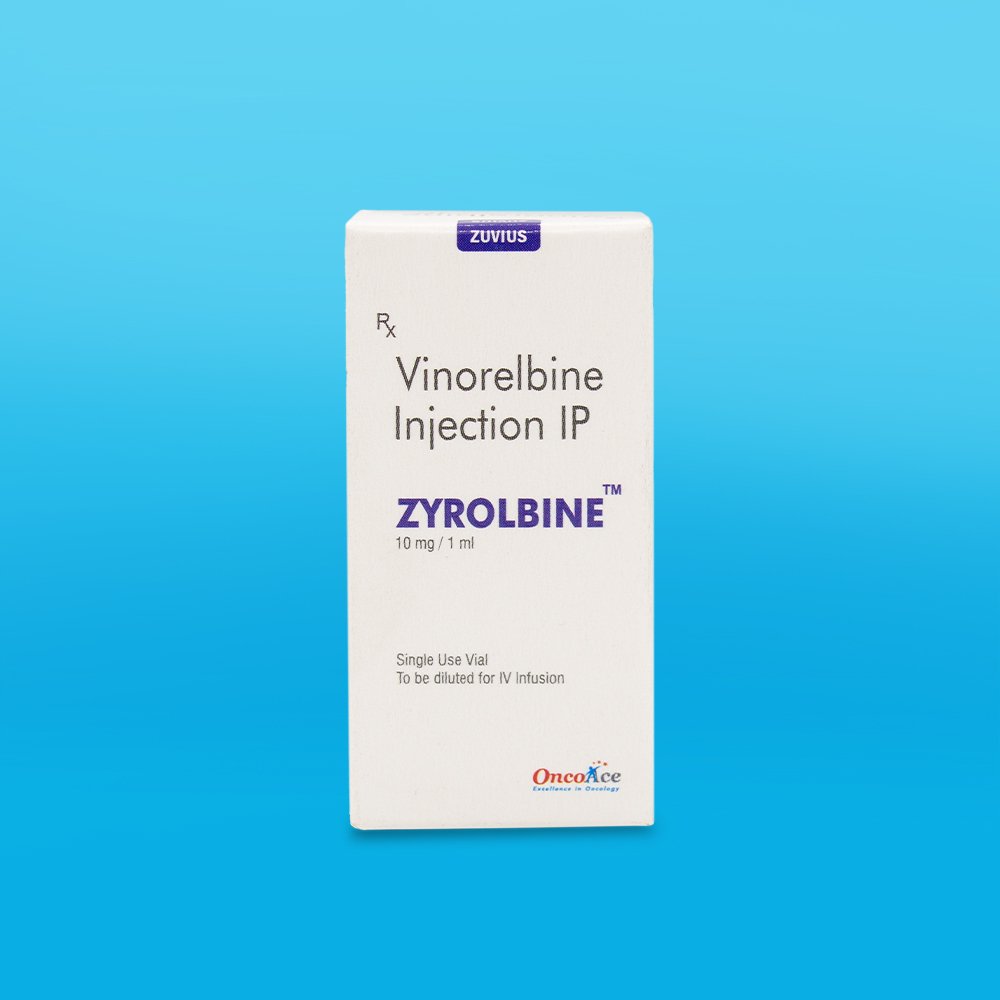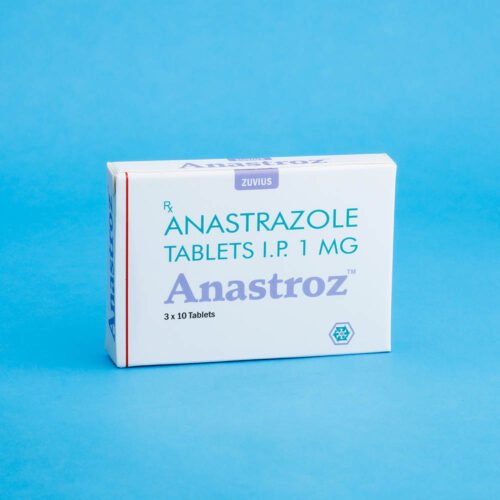Zyrolbine- Vinorelbine Inj
Vinorelbine
Strength: 10 MG, 50 MG
Pack Size: 1 vial
Drug Class: Antineoplastics, Vinca Alkaloid
Dosage and Administration:
DOSAGE & ADMINISTRATION:
Dose Modifications for Hepatic Insufficiency
ZYROLBINE should be administered with caution to patients with hepatic insufficiency. In patients who develop hyperbilirubinemia during treatment with ZYROLBINE, the dose should be adjusted for total bilirubin according to Table 6.
Dose Modification for Concurrent Hematologic Toxicity and Hepatic Insufficiency
In patients with both hematologic toxicity and hepatic insufficiency, the lower of the doses based on the corresponding starting dose of ZYROLBINE determined from Table 5 and Table 6 should be administered.
Dose Modifications for Renal Insufficiency
No dose adjustments for ZYROLBINE are required for renal insufficiency. Appropriate dose reductions for cisplatin should be made when ZYROLBINE is used in combination.
Dose Modifications for Neurotoxicity: If Grade 2 neurotoxicity develops, ZYROLBINE should be discontinued.
Administration Precautions
Caution – ZYROLBINE must be administered intravenously. It is extremely important that the intravenous needle or catheter be properly positioned before any ZYROLBINE is injected. Leakage into surrounding tissue during intravenous administration of ZYROLBINE may cause considerable irritation, local tissue necrosis, and/or thrombophlebitis. If extravasation occurs, the injection should be discontinued immediately, and any remaining portion of the dose should then be introduced into another vein. Since there are no established guidelines for the treatment of extravasation injuries with ZYROLBINE, institutional guidelines may be used. The ONS Chemotherapy Guidelines provide additional recommendations for the prevention of extravasation injuries.1
As with other toxic compounds, caution should be exercised in handling and preparing the solution of ZYROLBINE. Skin reactions may occur with accidental exposure. The use of gloves is recommended. If the solution of ZYROLBINE contacts the skin or mucosa, immediately wash the skin or mucosa thoroughly with soap and water. Severe irritation of the eye has been reported with accidental contamination of the eye with another vinca alkaloid. If this happens with ZYROLBINE, the eye should be flushed with water immediately and thoroughly.
Procedures for proper handling and disposal of anticancer drugs should be used. Several guidelines on this subject have been published. There is no general agreement that all of the procedures recommended in the guidelines are necessary or appropriate.
Preparation for Administration
ZYROLBINE Tartrate Injection must be diluted in either a syringe or IV bag using one of the recommended solutions. The diluted ZYROLBINE should be administered over 6 to 10 minutes into the side port of a free-flowing IV closest to the IV bag followed by flushing with at least 75 to 125 mL of one of the solutions. Diluted ZYROLBINE may be used for up to 24 hours under normal room light when stored in polypropylene syringes or polyvinyl chloride bags at 5° to 30°C (41° to 86°F).
Syringe: The calculated dose of ZYROLBINE should be diluted to a concentration between 1.5 and 3.0 mg/mL.
The following solutions may be used for dilution:
5% Dextrose Injection
0.9% Sodium Chloride Injection
IV Bag: The calculated dose of ZYROLBINE should be diluted to a concentration between 0.5 and 2 mg/mL.
The following solutions may be used for dilution:
5% Dextrose Injection
0.9% Sodium Chloride Injection
0.45% Sodium Chloride Injection
5% Dextrose and 0.45% Sodium Chloride Injection
Ringer’s Injection
Lactated Ringer’s Injection
Stability
Unopened vials of ZYROLBINE are stable until the date indicated on the package when stored under refrigeration at 2° to 8°C (36° to 46°F) and protected from light in the carton. Unopened vials of ZYROLBINE are stable at temperatures up to 25°C (77°F) for up to 72 hours. This product should not be frozen.
Parenteral drug products should be visually inspected for particulate matter and discoloration prior to administration whenever solution and container permit. If particulate matter is seen, ZYROLBINE should not be administered.
Cold Storage: no
Vinorelbine is a semisynthetic vinca alkaloid, derived from Vinbastine with broad spectrum of antitumor activity. It is a derivative of Vinblastine. However, Vinorelbine may have less neurotoxicity than Vincristine.
ZYROLBINE is indicated as a single agent or in combination with cisplatin for the first-line treatment of ambulatory patients with unresectable, advanced nonsmall cell lung cancer (NSCLC). In patients with Stage IV NSCLC, ZYROLBINE is indicated as a single agent or in combination with cisplatin. In Stage III NSCLC, ZYROLBINE is indicated in combination with cisplatin.
Vinorelbine is a vinca alkaloid that interferes with microtubule assembly. The antitumor activity of vinorelbine is thought to be due primarily to inhibition of mitosis at metaphase through its interaction with tubulin. Vinorelbine may also interfere with: 1) amino acid, cyclic AMP and glutathione metabolism, 2) calmodulin-dependent Ca++-transport ATPase activity, 3) cellular respiration, and 4) nucleic acid and lipid biosynthesis. Vinorelbine inhibited mitotic microtubule formation in intact mouse embryo tectal plates at a concentration of 2 μM inducing a blockade of cells at metaphase, but produced depolymerization of axonal microtubules at a concentration 40 μM, suggesting a modest selectivity of vinorelbine for mitotic microtubules.
- Read the label carefully before use
- Keep out of the reach of children
- Do not exceed the recommended dose
- Pregnancy ZYROLBINE may cause fetal harm if administered to a pregnant woman. A single dose of ZYROLBINE has been shown to be embryo- and/or fetotoxic in mice and rabbits at doses of 9 mg/m2 and 5.5 mg/m2, respectively (one third and one sixth the human dose). At nonmaternotoxic doses, fetal weight was reduced and ossification was delayed. There are no studies in pregnant women. If ZYROLBINE is used during pregnancy, or if the patient becomes pregnant while receiving this drug, the patient should be apprised of the potential hazard to the fetus. Women of childbearing potential should be advised to avoid becoming pregnant during therapy with ZYROLBINE.

